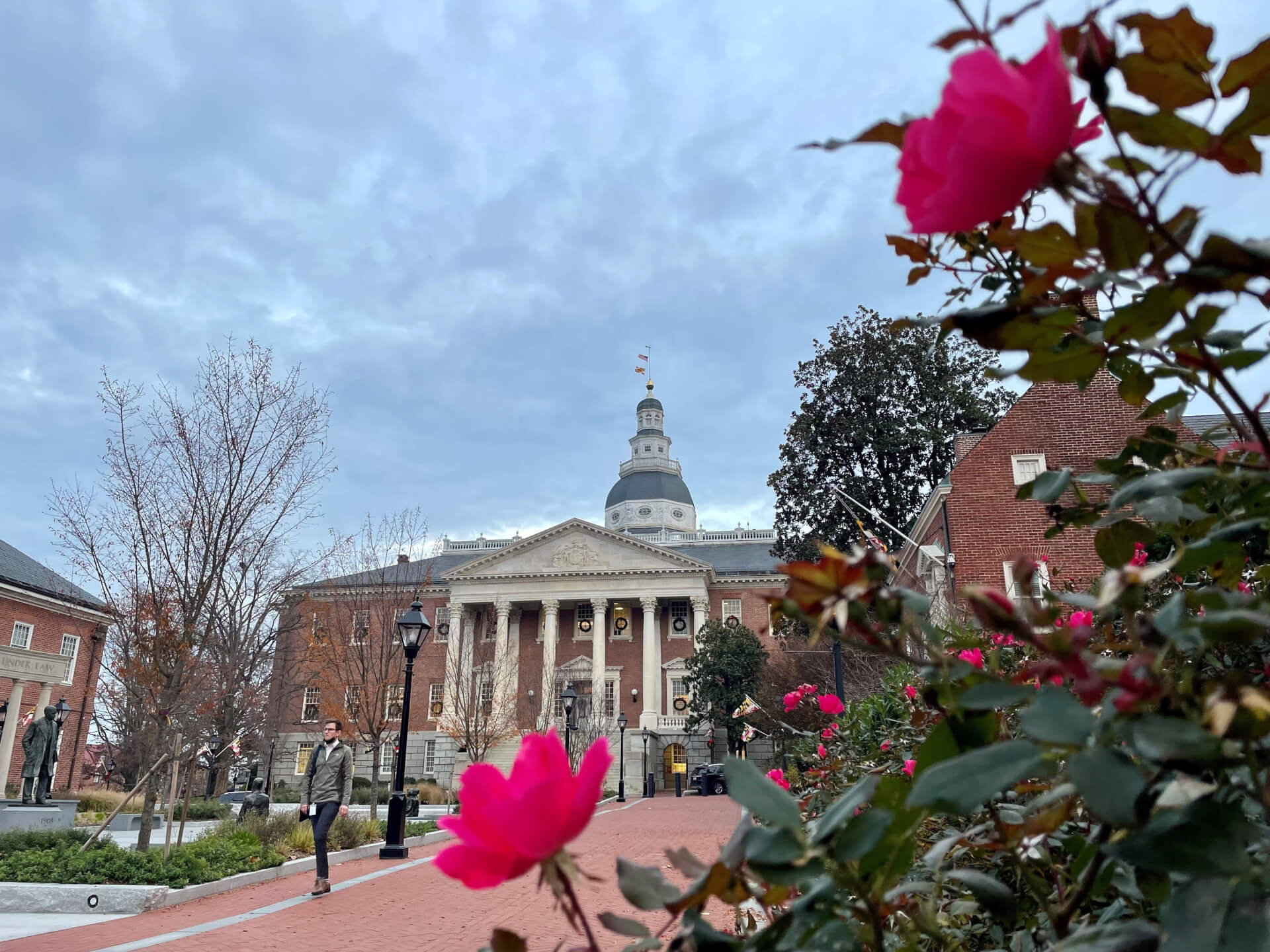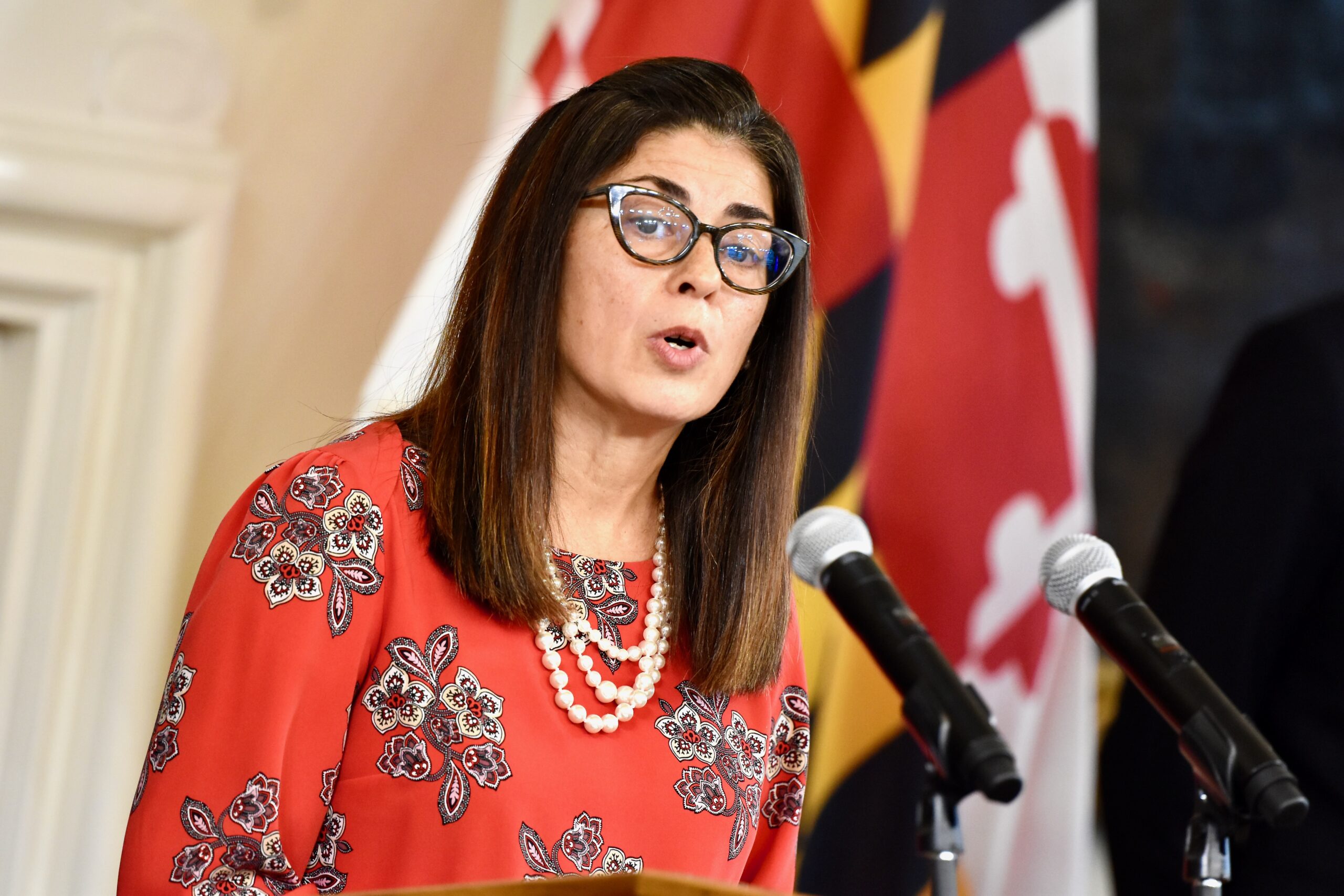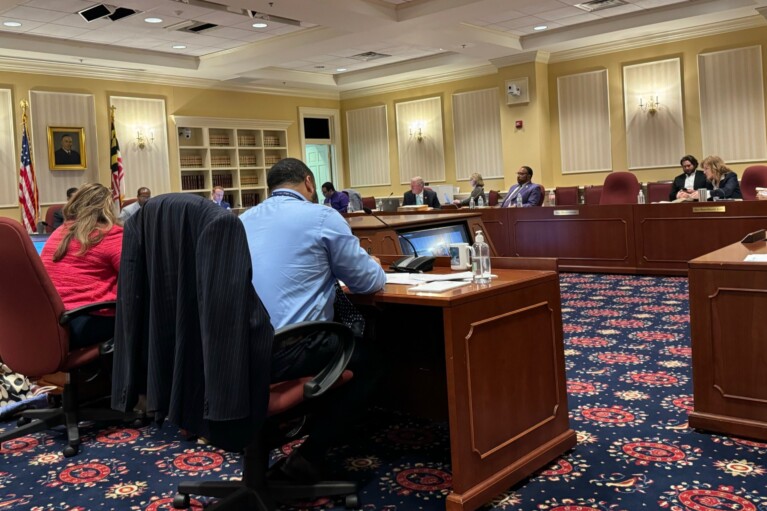Will any of the bills that got through the legislature cause Moore heartburn?

The easy part is over.
Gov. Wes Moore (D) signed dozens of bills into law Tuesday — most fitting neatly into distinct categories of his agenda.
Now the harder part comes: He’s got hundreds of bills that made it through the just-completed General Assembly session to review over the next six weeks. He has three bill signing ceremonies tentatively scheduled for April 25, May 9 and May 16. He can sign bills, veto them or let them become law without his signature.
While Moore has the luxury of working with Democratic supermajorities in the legislature, that doesn’t mean he’ll always be in harmony with lawmakers. So did they just pass any bills that will give the governor heartburn? Is there anything that could emerge on his veto list?
Right now, it’s probably too early to say.
“The Governor is reviewing all bills for signing decisions and will announce the bills he plans to sign a few days ahead of each scheduled signing ceremony,” a spokesperson, Carter Elliot IV, said in an email Wednesday.
Here are at least a few measures that passed with some degree of controversy — and where Moore may feel pressure from advocates to wield his veto pen.
Juvenile justice
With many Maryland residents worried about crime, and certain media outlets paying an inordinate amount of attention to juvenile crime, the governor has said he would sign a juvenile justice reform measure if it offered both accountability and rehabilitation.
But some criminal justice advocates and a few lawmakers argue that the legislation that got through, House Bill 814, needs more data to justify adding more potential criminal charges for children ages 10 to 12. Some are urging Moore to veto the bill.
Under the legislation, those youths would be under the jurisdiction of the state Department of Juvenile Service (DJS) and sent to juvenile court if charged for certain crimes such as a third-degree sex offense, aggravated animal cruelty and some firearm offenses.
State’s attorneys could review various complaints and case files of children under DJS supervision. In addition, could be sent to a diversionary program managed by a state’s attorney’s office, or a community-based organization.
One provision agreed upon by House and Senate leaders was to require all 23 county and Baltimore City school boards to offer alternatives to public education for youths registered as juvenile sex offenders.
“I’m glad the bill does add accountability. We all want the best for our [children], but there’s definitely more work to do,” Sen. Johnny Mautz (R-Middle Shore), who voted in support of the measure, said during an interview Tuesday.
Sen. Charles E. Sydnor III (D-Baltimore County), who voted against the bill, said he hopes the department’s programs and other state and local services help children.
The rehabilitation actions include codifying the Thrive Academy, a program launched last year by the state Department of Juvenile Services. It provides community-based, gun violence prevention programs for youth at the highest risk of being a victim or perpetrator of gun violence.
DJS Secretary Vincent Schiraldi said in an interview in January the program that began in Baltimore City and Baltimore County had 33 youths. He said none were involved in gun violence since entering the program, which expanded earlier this year into Prince George’s and Anne Arundel counties. Those four jurisdictions accounted for 85% of gun violence among youth last year, Schiraldi said.
The plan is to expand the program to 300 youths statewide by July 1.
Additional services would be provided for young people such as $111 million in behavioral health grants and another $24 million for juvenile services’ programming.
Meanwhile, a Commission on Juvenile Justice Reform and Emerging and Best Practices to complete tasks such as reviewing the department’s education and diversionary programs, researching evidence-based programs and reviewing deaths that involve children under the supervision of DJS.
“The hope is that children who are caught up in [juvenile system] begin getting the services and the help that they need so they can be rehabilitated, which is the mission of the Department of Juvenile Services,” Sydnor said Tuesday. “There’s always room for improvement. From the conversations that I’ve had with the secretary, I believe he’s committed to seeing those types of improvements through.”
Assisted outpatient treatment programs
A bill that could impose court-ordered treatment plans on those with severe and persistent mental health needs is heading to the governor’s desk, but some advocates are unhappy about it.
The Maryland Department of Health requested the legislation to allow counties to create their own Assisted Outpatient Treatment program, in which a circuit court can order a specified mental health treatment regimen for someone with severe and persistent mental health needs — potentially without their consent. The bill also allows counties to use a program created by the state health department.
Assuming Moore approves the legislation, he could face a round of pushback from disability advocates, who worry that bill the infringes on civil rights and ignores the concerns of those suffering from severe mental health challenges.
HB 576/SB 453 was initially called the “Emergency Evaluation and Involuntary Admission Procedures and Assisted Outpatient Treatment Programs,” but an amendment shortened the title to just “Assisted Outpatient Treatment Programs.”
Under the bill, the director of specific mental health programs or any adult with a legitimate interest in the welfare of a person with persistent severe mental health needs can petition a circuit court for assisted outpatient treatment.
After a petition is filed, a “care coordination team” would create a treatment plan for the individual with mental health needs and the individual has an opportunity to voluntarily agree to the plan. If the individual does not agree to the treatment plan, then the issue would go to a circuit court hearing.
The bill requires the care team to consist of a psychiatrist, a case manager, certified peer recovery specialist, and any other personnel as “clinically appropriate.”
As the bill went through committee meetings, members of Disability Rights Maryland spoke in opposition to the bill and worry that the process could further traumatize those who are already struggling, lead to distrust in hospital settings, and create medical debt for those patients.
The Mental Health Association of Maryland says “the debate in Maryland over the advisability of establishing an Assisted Outpatient Treatment… has continued for decades with passionate advocates on both sides,” according to the group’s 2024 session summary report.
The organization has historically opposed expansion of court-ordered treatment, according to the report, but MHAMD says that their public policy team worked with the Maryland Department of Health to ensure that the procedure was limited in scope and “protective of individual legal and civil rights.”
Kids’ code
A trade group led by some of the world’s largest social media and retail companies is urging Moore to veto a bill proponents said will protect teens and children.
NetChoice, an internet trade association that includes some of the biggest names in internet retail, service and social media, said the bill headed to the governor could chill free speech, hurt the state’s small business community and economy and is unconstitutional.
“In its attempt to protect Marylanders online, the legislature has proposed something that is unconstitutional,” Carl Szabo, vice president and general counsel for NetChoice, wrote in a four-page letter. “But an unconstitutional law won’t keep anyone safe or keep them better informed. While they might make people feel good or like they “did something,” unconstitutional laws don’t address important concerns and, indeed, by prolonging the arrival of real solutions, an unconstitutional law only makes everyone worse off.”
NetChoice members include Amazon, Google, Facebook and Instagram owner Meta, and TikTok.
House Bill 603 and the identical SB 571 requires default privacy settings and safety measures for children including how social media and other companies collect or sell data of users who are minors. The bill also requires companies to complete assessments that specifically look at how a new feature might affect children before the feature is rolled out to the public.
Companies would be subject to fines of $2,500 per child for each negligent violation and $7,500 per child for an intentional violation.
California enacted a similar law in 2022. NetChoice successfully blocked the law in U.S. District Court on the basis that the law violated the First Amendment.
The lower court decision is being appealed in the United States Court of Appeals for the Ninth Circuit.
Electric utility reform
Within hours of the close of the General Assembly session, one big energy company, in forceful language, urged Moore to veto Senate Bill 1, a measure to modify the state’s deregulated retail electricity marketplace by adding more robust consumer protections. NRG Energy, one of the companies that competes with electric utilities to sell electricity to ratepayers, called the bill “a gigantic misstep.”
“NRG expressed concerns SB 1 would drive the most responsible retail energy suppliers out of Maryland, create a de facto monopoly for utilities, and inevitably leave ratepayers with higher prices and fewer products from which to choose,” the company said in a statement. “Further, SB1 would inflict irreparable harm upon a sector that is a principal catalyst of renewable energy development and consumption by placing market-killing restrictions on rate plans that offer 100% renewable energy to our customers’ homes.”
Several big energy companies, including NRG and Constellation, have suggested that greater scrutiny of industry practices could prompt suppliers to stop doing business in the state.
Laurel Peltier, chair of the group Maryland Energy Advocates Coalition, and an advocate on utility issues for the senior group AARP Maryland, in an email to allies Wednesday, said the legislation provides “meaningful consumer protections.” But she warned that the fate of the measure is not a done deal.
“It seems unlikely Governor Moore would veto it,” she wrote, “though retail supplier industry is still working hard to make that happen!”







 Creative Commons Attribution
Creative Commons Attribution